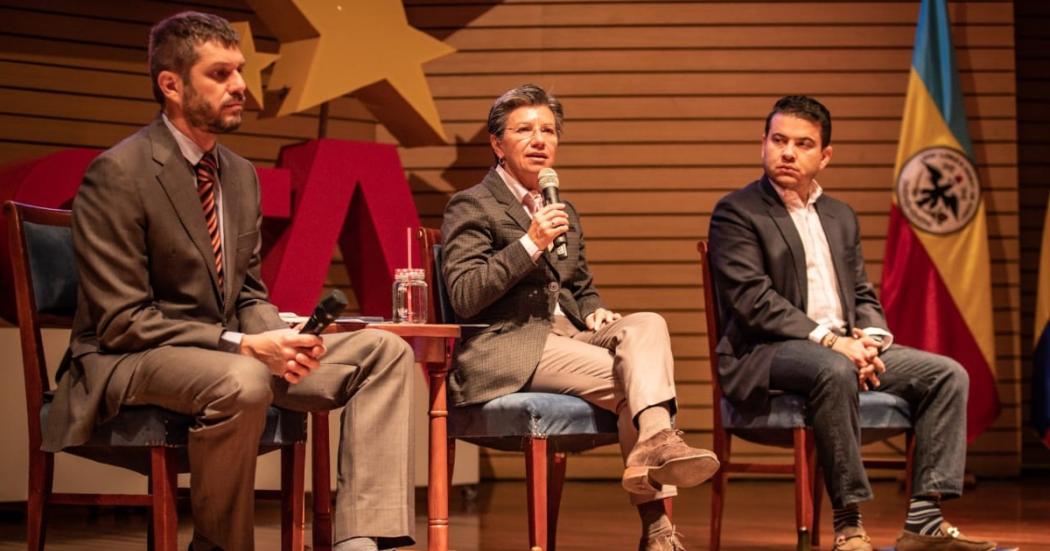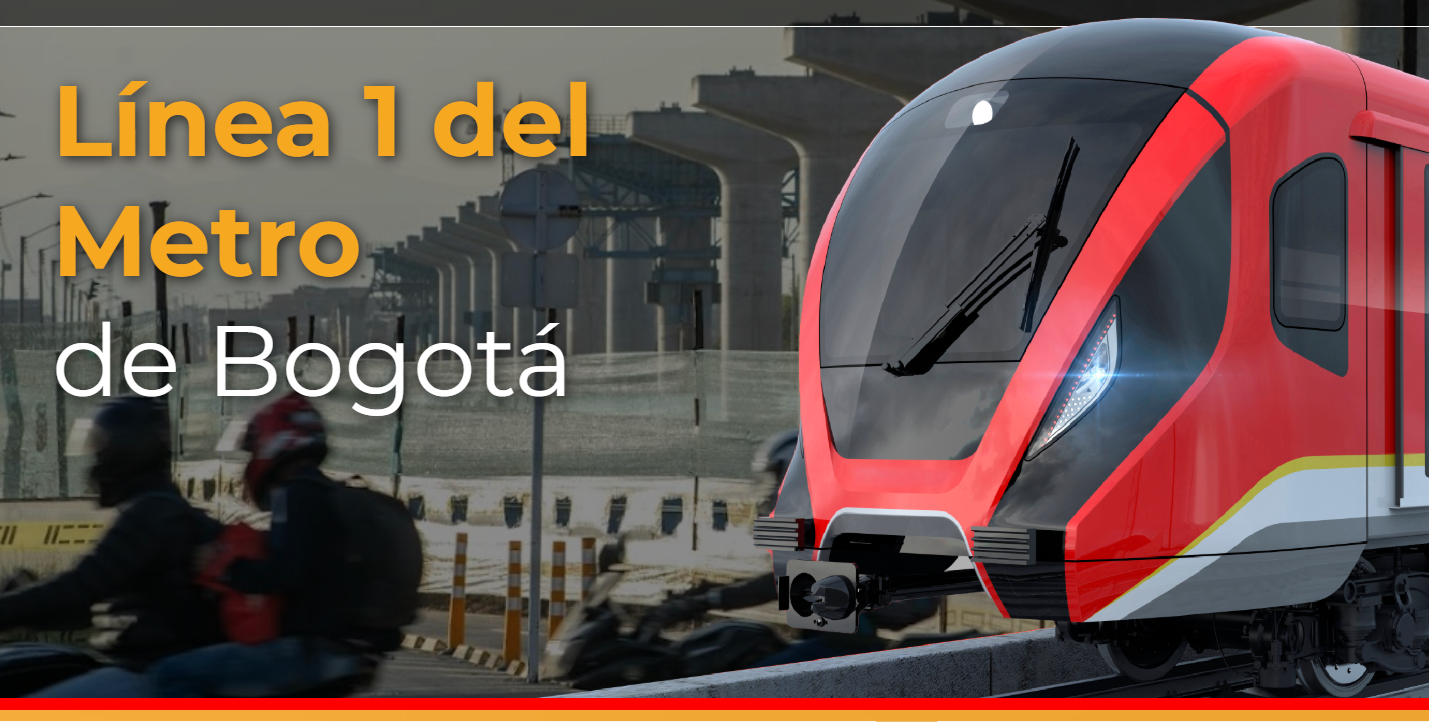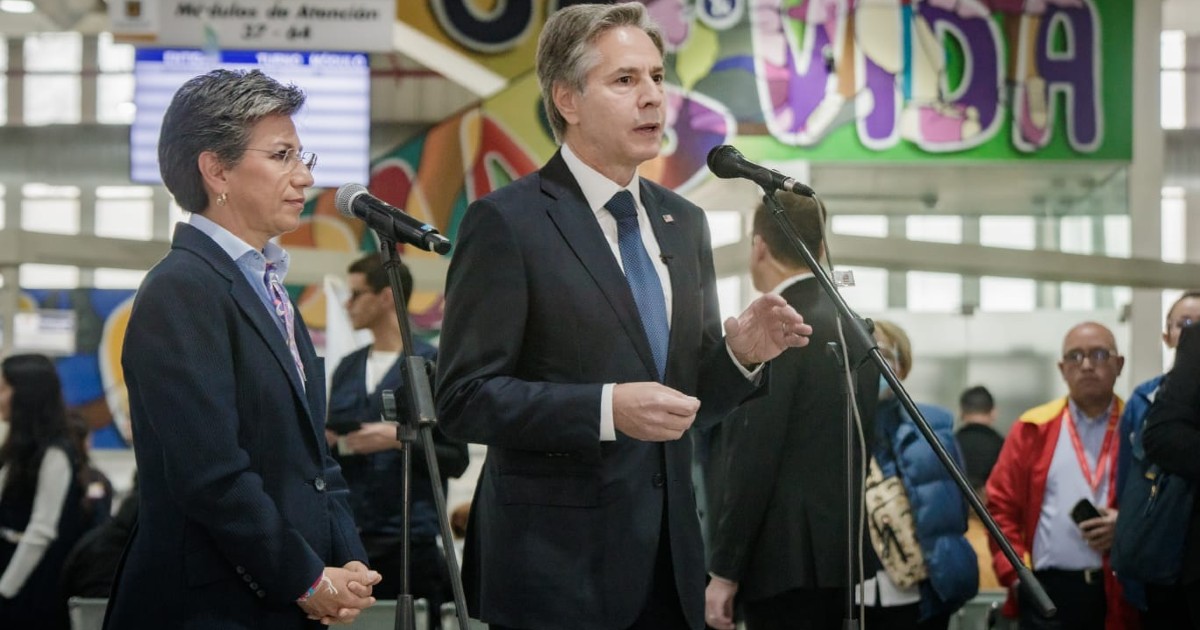On World Metropolitan Day, the Mayor's Office of Bogotá, UN-Habitat, and the global network of large cities and metropolitan areas Metropolis, held the conference "Metropolis of Care: Redrawing Borders with Empathy.”
The official opening of the space for the exchange of experiences, which highlighted the importance of care, strengthening governance, and empathy to face the challenges of metropolitan cities, was attended by Jordi Váquer, Secretary General of Metropolis; Elkin Velásquez, UN-Habitat representative for Latin America and the Mayor of Bogotá and president of the global network of large cities and metropolitan areas Metropolis, Claudia López.
"Bogotá has the honor of presiding over Metropolis, we called for Collective Action to take care of people, to also take care of the democracy that allows us to be cared for as equals, and to call upon these democracies take care of the planet. Only democracies care for the planet, and only democracies care for their citizens and are empathetic with the citizens of the world," said Mayor Claudia López.
She added: "That is why I invite you to act together through Metropolis, because the difference between local and metropolitan governments and national governments is that we are the ones who must act immediately; we work in peace. That is why we call on you to join the action on this World Metropolitan Day".
Here, a tweet in which Mayor Claudia López, refers to the actions of Bogotá and its District Care System:
El 52% de población somos mujeres, 1,2 millones se dedican a trabajos de cuidado no remunerado y 700mil están en pobreza. En Bogotá hicimos más de 200mil atenciones a ellas y a quienes cuidan.Y seguiremos. Una mujer educada y con autonomía económica se empodera y nadie la agrede! pic.twitter.com/TES0WXocaW
— Claudia López Hernández (@ClaudiaLopez) October 7, 2022
For his part, Jordi Váquer highlighted the importance of metropolitan governments for the development of mobility, education, and sustainable development projects. "We are working on a new scale, the metropolitan scale, which is not only about staying within administrative limits; it is about thinking of cities with their ecological environment. We must break with the idea that there is a difference between the rural and urban world; the metropolitan attitude is about breaking down the idea of center and periphery," he said.
Metropolis of Care: Redrawing Borders with Empathy.
The Governor of Cundinamarca, Nicolás García; the Mayor of the City of Montevideo, Carolina Cosse; the UN-Habitat representative for Latin America, Elkin Velásquez; and the Mayor of Bogotá, Claudia López; discussed the reorganization of metropolises in the face of care, which means putting the conditions to guarantee the well-being and care of people at the center of governance and planning.
"In the Bogotá - Cundinamarca Metropolitan Region we have been working on empathy, because no one is more important than anyone else for having more residents or resources. We are working to recognize that without countryside there is no city," said the governor, who in turn explained that: "The innovative aspect of the Metropolitan Region is that the direct purchase from farmers in Cundinamarca is guaranteed, so that rural residents have greater resources for their quality of life and to continue producing."
Mayor Carolina Cosse stated that: "Cities are much more than a geographical issue, because being the place with the highest concentration of population, they are also the place of greatest hope for the conservation of humanity", which is why she proposed that governance should be accompanied by citizen participation and the generation of a cultural change aimed at caring for others and the environment.
"We are working on a cultural change for the care of the environment and Latin America, because here there is solidarity and popular struggles that allow the coexistence of citizens and the protection of democracy. If we are peers, we build a better society that fights for equality and sustains a healthy democracy with a brighter future," stressed the mayor of Montevideo.
Elkin Velásquez said: "From UN-Habitat we want to raise the issue of care in the implementation of global agendas, we propose to continue on what has been built, we will also internationalize the localization of the Sustainable Development Goals, care, and proximity policies."
The UN representative for Latin America also noted: "The experience of Bogotá inspires Latin America and the Caribbean because it shows the political will to advance in care policies", and recommended: "governments should guide, channel, and generate the possibility of bringing together more resources, so that we have more integrated and comprehensive projects, focusing on the care economy".
Finally, Mayor Claudia López presented Bogotá's experience in the area of care: "It is not by chance that in Latin America is where care is relevant, because half of the population of Latin America work in informal jobs and those who provide care services, women, are the unpaid pension and care system. No one pays these women a peso and in this sacrifice of our time to take care of others, what we see is not love but the feminization of poverty," she said.
The president of the Metropolis global network of large cities and metropolitan areas explained that: "Fifty-two percent of our population are women, and of that 52%, 1.2 million are engaged in unpaid care work. Of these women, 700,000 of them live in poverty. This has been going on for decades and it took a woman becoming the mayor of Bogotá for this to change, become relevant, and be addressed."
Mayor López emphasized that: "A system of care must care for those who care for us and care for those they care for. The women of the world do not have the DNA of caring in our blood, all human beings learn to care if we are taught to do so, and in Bogotá we have devised services to learn to care, such as the Men's School of Care, where participants learn to care and feel empathy for others."
Finally, the Mayor explained that during her administration the District Care System -which to date has already provided more than 200,000 services to the women of Bogotá- plans to have 20 Care Blocks, which will offer their services via the city’s existing infrastructure.
"Bogotá’s POT (Land Use Plan) foresees that with the existing infrastructure we will have 20 or 25 Care Blocks. However, if we want to have a Care Block at a maximum distance of 30 minutes from all residents, we must have 40 of them. To achieve this, we need the citizen support in the elections and that those in power fulfil these commitments. Therefore, we must explain and demonstrate to the citizens that these measures make change and that this in turn creates Social Mobility. In this way we will have more egalitarian societies," she said.
The following is the streaming of the Metropolis of Care: Redrawing Borders with Empathy conversation:







